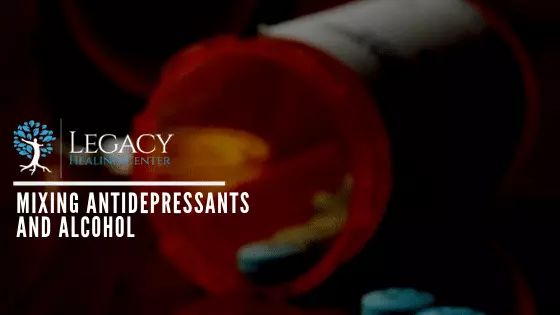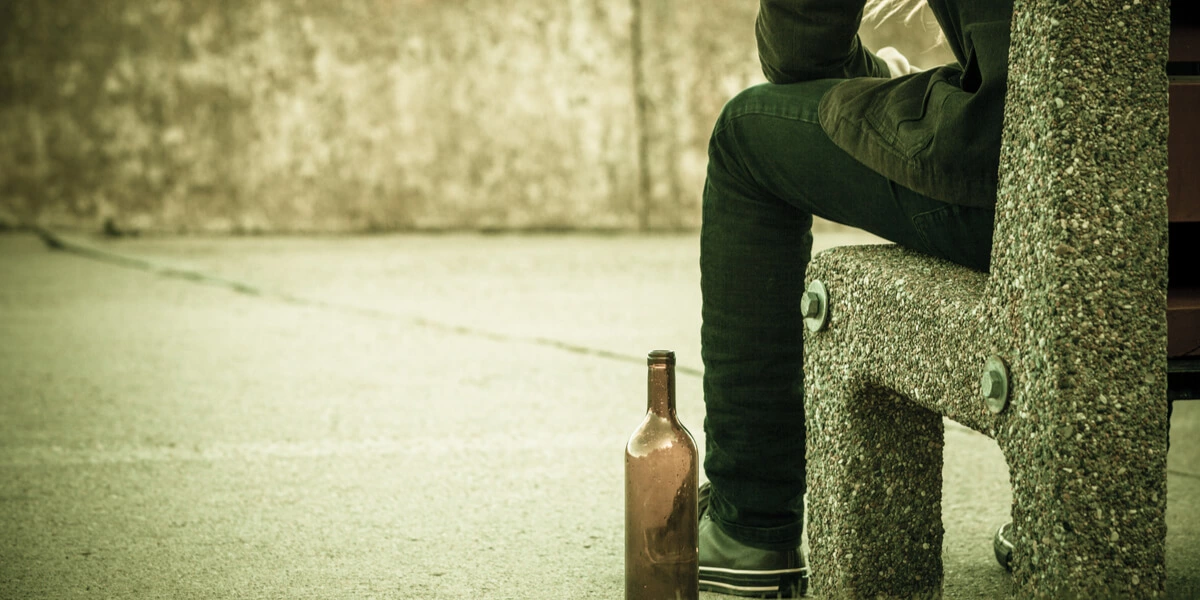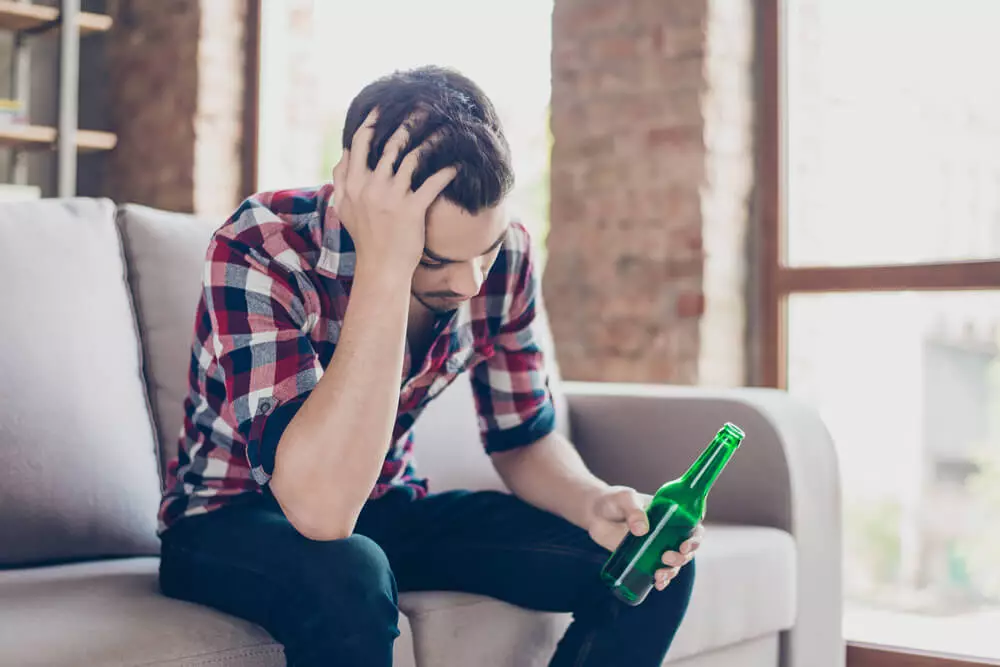Mixing Antidepressants & Alcohol
Drinking while on antidepressants can be a risky and dangerous activity. Alcohol can actually worsen depression and make the side effects of antidepressants worse, which counteracts the point of taking antidepressants in the first place. While everyone metabolizes medications and alcohol differently, mixing antidepressants and alcohol is likely not a risk that anyone who struggles with depression should take.
Alcohol is a depressant, meaning that it depresses important bodily functions when taken in high amounts. Those who abuse alcohol are more likely to suffer from depression, and those who are depressed are more likely to begin abusing alcohol. While it is dangerous to the body to combine alcohol and antidepressants, it can also increase the risk of developing an alcohol use disorder or worsening depressive symptoms.
Dangers of Drinking While on Antidepressants
Abusing alcohol alone is extremely dangerous as it causes physical and mental impairments and carries a risk of addiction, however, drinking while on antidepressants can trigger extreme drowsiness and sedative-like effects. This can cause breathing to slow down too much, generate a lack of oxygen to the brain, and increase the likelihood of a blackout. With reduced inhibitions, a person abusing alcohol while on antidepressants may engage in reckless driving and other risky behaviors. The person may experience a lack of judgment, impaired thinking, and a lack of coordination.
Alcohol abuse always carries a risk of developing an alcohol use disorder. This risk is heightened for individuals who suffer from mental illnesses such as depression. As many as 33% of people who suffer from depression also have a problem with alcohol. When alcohol is consumed while taking antidepressants, the medications often become less effective causing an individual’s depression to become worse. Oftentimes, the side effects of the medication will become worse as well. To cope with increased depression, individuals may begin to drink more and are more likely to suffer from suicidal thoughts. In addition to increased depression, alcohol abuse can increase anxiety and other symptoms of mental illness. This can throw a person into a vicious cycle of alcohol addiction and depression.
Other risks that come with mixing alcohol and antidepressants are:
- Poor sleep quality
- Liver damage
- High blood pressure
- Increased risk of being involved in an accident
- Increased risk of abusing other substances to cope with symptoms of depression and anxiety
Types of Antidepressants & How They are Affected by Alcohol
Most antidepressant labels caution against drinking while on antidepressants, but different types of antidepressants can have specific reactions and risks associated when alcohol is consumed.
Selective serotonin reuptake inhibitors (SSRIs)
SSRIs are often the first antidepressant prescribed when a person is diagnosed with depression. Although they generally don’t cause serious problems when taken with alcohol, the manufacturers still do not recommend drinking while taking an SSRI. SSRIs can make individuals feel groggy and alcohol can increase these sedative-like effects causing a person to feel extremely drowsy.
Tricyclic antidepressants (TCAs)
TCAs have the potential to make people feel especially drowsy and uncoordinated during the first few weeks of taking them. For this reason, the manufacturers caution users to avoid drinking alcoholic beverages while taking a TCA. After the first few weeks, it may be safe to drink small amounts, but prolonged alcohol abuse can still cause these antidepressants to lose their effectiveness.
Monoamine-oxidase inhibitors (MAOIs)
It is particularly dangerous to drink alcoholic beverages while taking an MAOI. A chemical, tyramine, is commonly found in alcoholic drinks and can cause adverse side effects if taken with an MAOI. Consuming alcohol while taking this type of antidepressant can lead to a dangerous spike in blood pressure.
Alcohol Abuse and Antidepressants
As with any prescription medication, it is important to speak with a doctor regarding possible interactions of alcohol with prescriptions. A person who has a depression diagnosis and is taking any type of antidepressant should be aware of the potential dangers and the risk for alcohol addiction.
For some individuals, mixing antidepressants and alcohol can be a sign that their antidepressant isn’t working to effectively treat their symptoms. In turn, those with untreated depression have an increased risk of developing a problem with drugs or alcohol. Someone who is on an antidepressant and finds themselves drinking despite doctor’s orders or despite any side effects they may be experiencing is likely suffering from an alcohol use disorder and could benefit from seeking help from medical detox and treatment.
Individuals who are suffering from an alcohol use disorder while being prescribed an antidepressant may be at risk of discontinuing their medication because it may stop working. This can lead to further complications like antidepressant withdrawal, seizures, worsening of depression symptoms, and a high risk of self-harm and suicide.
Checking into an alcohol detox program and attending an inpatient alcohol rehab can help these individuals safely detox, get on the right medication to treat their symptoms, and learn how to cope with their symptoms of depression without the use of alcohol.




